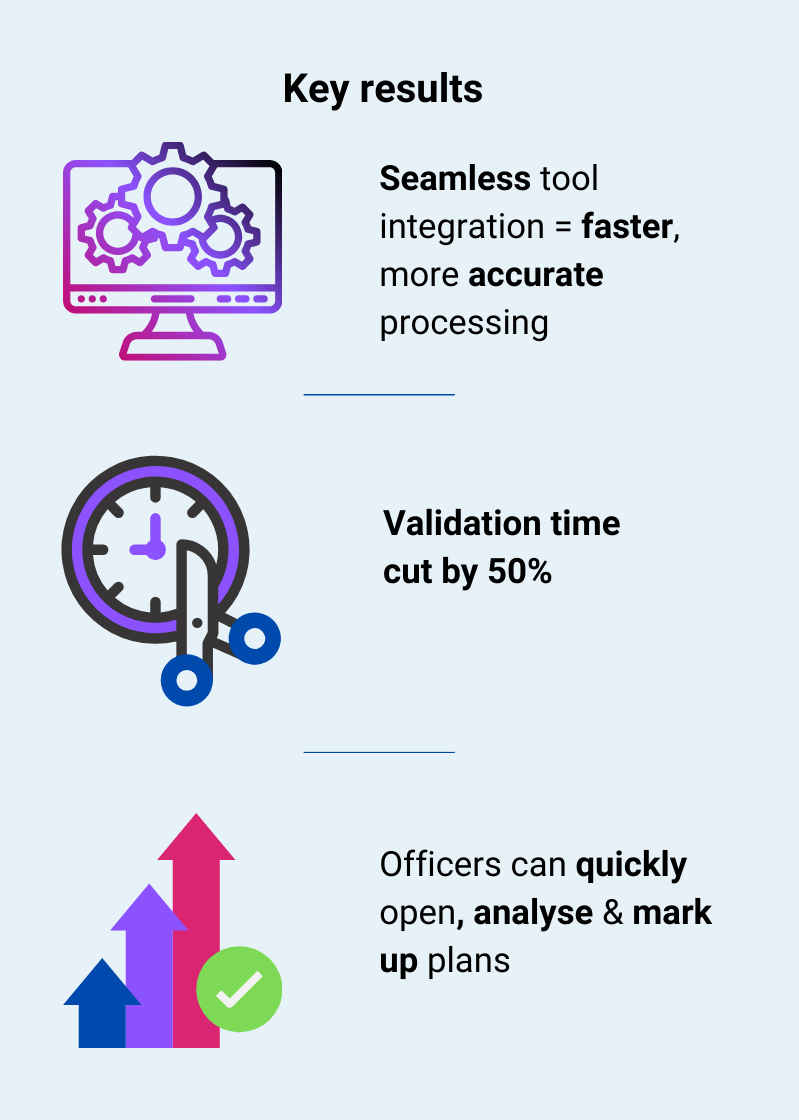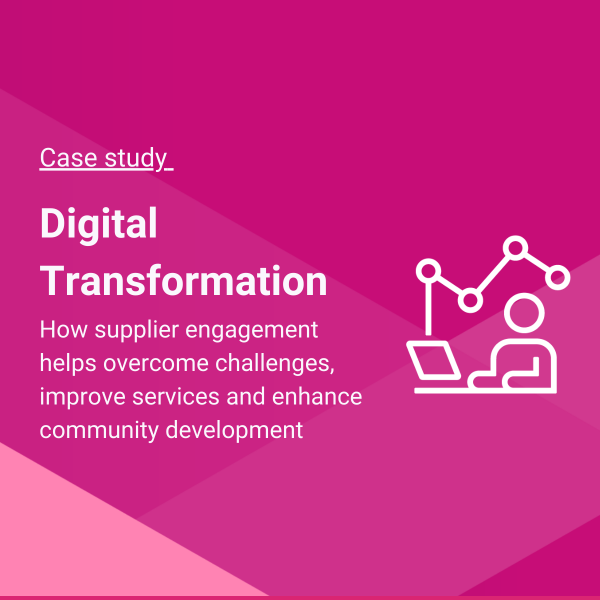Challenge
Before the transformation, Salford's planning department operated with disparate systems, with application data stored in Salford’s previous back office system and documents managed through a separate Document Management Solution. This manual integration process was time-consuming, with the validation and registration of a standard householder application taking approximately 40 minutes. Furthermore, basic checks of plans such as measuring distances were cumbersome and some tools for analysing and comparing plans were not available to officers. This was affecting the quality and speed of the plan assessment and the quality of the proposal.
Solution
In March 2023, Salford secured funding from the Ministry of Housing, Communities and Local Government as part of the Planning Software Investment Fund to integrate three leading software solutions - ieg4 AI (Artificial Intelligence) Validator, Arcus and Objective Trapeze. This integration aimed to streamline and automate processes in the validation and registration of applications as well as the analysis of plans.
Following the completion of the project, Salford achieved seamless integration across the planning portal, AI Validator/Arcus/Objective environment, resulting in significant efficiencies.
Implementation
Applications are received from the Planning Portal and validated using the ieg4 AI Validator.
- The ieg4 AI Validator automatically evaluates planning applications against national and local validation rules using advanced AI algorithms, including automated naming and categorisation of documents.
- Applications are then passed onto the Arcus back office system where, after a brief check by officers, configuration allows for tasks to be automated.
- Integration ensures that document types are populated with ieg4 AI Validator's categorisation in Arcus, ready for viewing on the council's planning and building control public register.
- Building, site and elevation plans can now be launched directly from Arcus into Objective Trapeze and any changes made can be automatically saved back into Arcus. The wide range of analysis and plan comparison tools are now easily accessible to officers.
Results
The integration of the AI Validator/Arcus/Objective environment has drastically reduced the standard validation/registration time from 40 minutes to just 20, representing a 50% improvement for a standard householder application validation.
As an authority that receives around 600 householder applications each year and almost 2,000 applications in total, this improvement has been transformative in enhancing efficiency and accuracy in processing planning applications.
By focusing on process improvements and closely integrating their tools, Salford's planning department has created a more efficient working environment for all members of the technical team. In addition, the ability of officers to quickly open, analyse and mark up plans and save them back into Arcus has greatly improved the speed and quality of assessment. The ability to utilise powerful tools quickly has ultimately led to improvements in the quality of development.

Conclusion
Salford's digital transformation journey exemplifies the power of integrating modern software solutions to streamline processes and drive efficiency in planning departments. By leveraging cloud-based systems, artificial intelligence, and intelligent document analysis tools, Salford has not only reduced processing times but also improved accuracy and user experience. This case study serves as a testament to the benefits of strategic investment in digital solutions for public sector organisations.
Want to know more?
To learn more about Salford Council’s digital transformation journey, contact the Open Digital Planning team.
